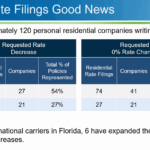Contract logistics services provider, Schenker Inc., has agreed to pay $750,000 to resolve several charges of discrimination filed with the U.S. Equal Employment Opportunity Commission (EEOC) pursuant to Title VII of the Civil Rights Act of 1964, the agency announced.
The multi-year investigation began in May 2011 when a group of warehouse employees in Joliet, Ill., alleged that they had been subjected to ongoing race and national origin harassment in the workplace, which persisted despite their complaints to management.
A subset of the group also made allegations of sexual harassment.
Following the initial complaints, the EEOC investigated allegations that the company’s national hiring practices hindered the employment prospects of black and Hispanic applicants. The agency issued a finding that the evidence showed reasonable cause to believe the company had violated the Civil Rights Act.
The company has denied the allegations. In an effort to resolve the charges, Schenker has, however, agreed to pay $750,000 to individuals identified by EEOC as having been subjected to the unlawful discrimination.
The monetary relief will be awarded as damages to individual charging parties and class members who worked at the Joliet warehouse, along with others identified by EEOC as having been denied employment opportunities.
The company has also partnered with EEOC to implement a variety of measures aimed at preventing discrimination in their workplace and educating their workforce. Notably, the company updated its criminal background check policy to comply with EEOC guidance, ensuring that background checks on prospective employees are not conducted until an offer of employment has been made. Moreover, criminal records will be reviewed on a case by case basis, with consideration given to the nature and gravity of the offense, the time elapsed, and the specifications of the position.
Schenker Inc. also agreed to update its policies on harassment and discrimination, implement an external outlet for individuals who wish to make complaints of discrimination, and conduct annual training for all its employees nationwide, including specialized training for those working in a HR or hiring capacity. Furthermore, the company agreed to provide periodic reports of any new complaints of discrimination and applicant flow data to the EEOC for the next three years.
Source: EEOC
Was this article valuable?
Here are more articles you may enjoy.


 College Team Physicians Wary of Greater Liability Risk With Athletes Making Money
College Team Physicians Wary of Greater Liability Risk With Athletes Making Money  DeSantis Signs Law Giving Condo Owners Some Relief, But Questions Remain
DeSantis Signs Law Giving Condo Owners Some Relief, But Questions Remain  As Hurricane Season Picks Up, Key Forecasting Tool Access Set to End
As Hurricane Season Picks Up, Key Forecasting Tool Access Set to End  Slide’s Exec Pay Leads to Questions About Florida Citizens’ Rate Model
Slide’s Exec Pay Leads to Questions About Florida Citizens’ Rate Model 

